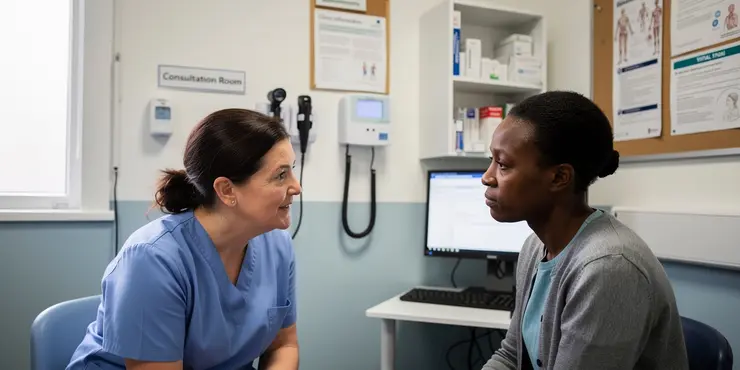
Find Help
More Items From Ergsy search
-
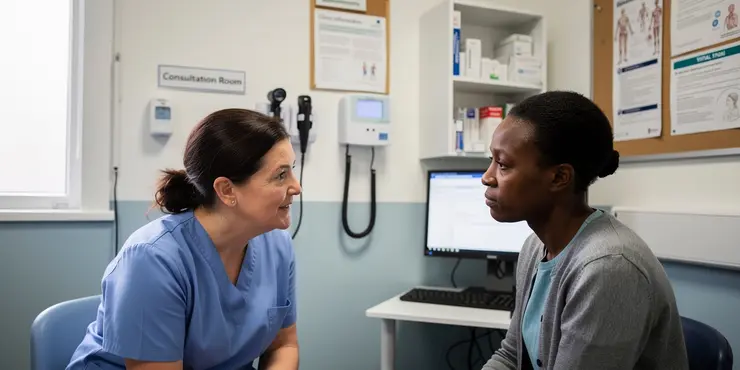
What is the life expectancy after a motor neurone disease diagnosis?
Relevance: 100%
-

What is motor neurone disease?
Relevance: 80%
-
Is motor neurone disease hereditary?
Relevance: 77%
-
Are there different types of motor neurone disease?
Relevance: 77%
-
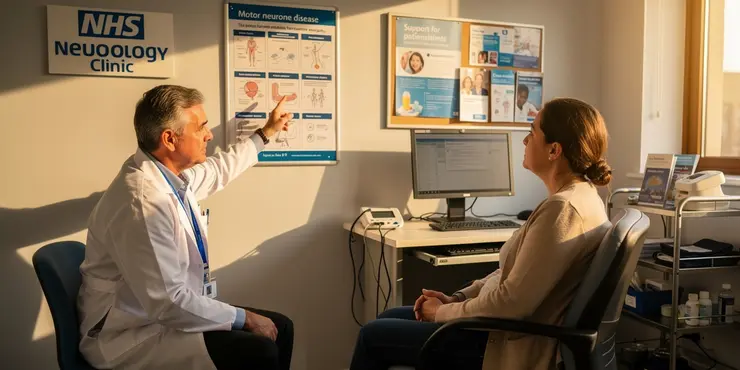
Is there a cure for motor neurone disease?
Relevance: 70%
-

How is motor neurone disease diagnosed?
Relevance: 69%
-

What causes motor neurone disease?
Relevance: 68%
-

Motor neurone disease Julie's story | NHS
Relevance: 67%
-

What are the primary symptoms of motor neurone disease?
Relevance: 67%
-

What treatments are available for motor neurone disease?
Relevance: 63%
-
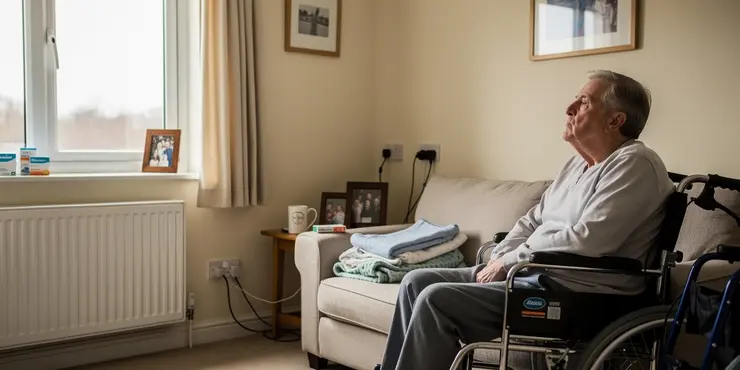
How is breathing affected by motor neurone disease?
Relevance: 63%
-
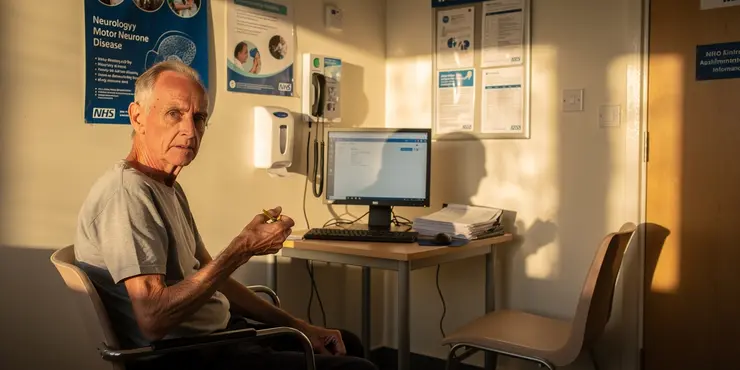
How does motor neurone disease affect the body?
Relevance: 63%
-
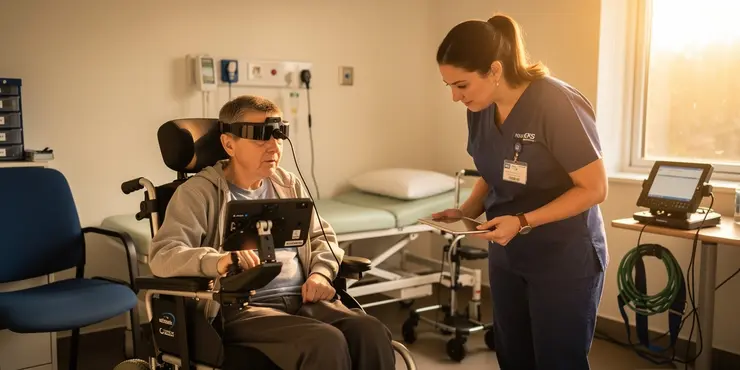
What assistive devices can help people with motor neurone disease?
Relevance: 62%
-

What role do genetics play in motor neurone disease?
Relevance: 60%
-
How does motor neurone disease affect speech?
Relevance: 57%
-
Can lifestyle changes impact motor neurone disease progression?
Relevance: 56%
-
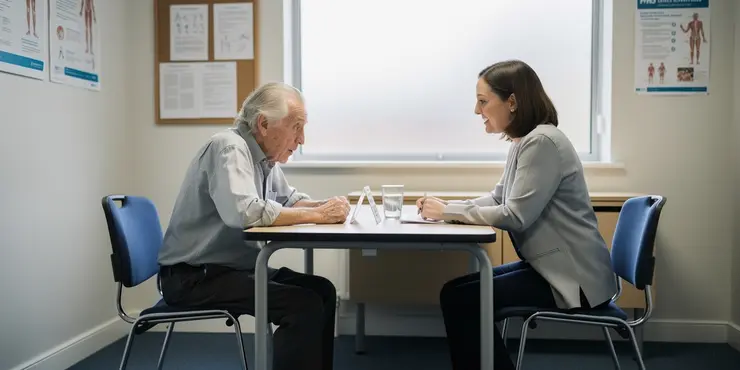
How does motor neurone disease impact swallowing?
Relevance: 56%
-

Voice banking service helps people live with motor neurone disease
Relevance: 56%
-

How can caregivers support someone with motor neurone disease?
Relevance: 50%
-

Are there support groups for individuals with motor neurone disease?
Relevance: 46%
-
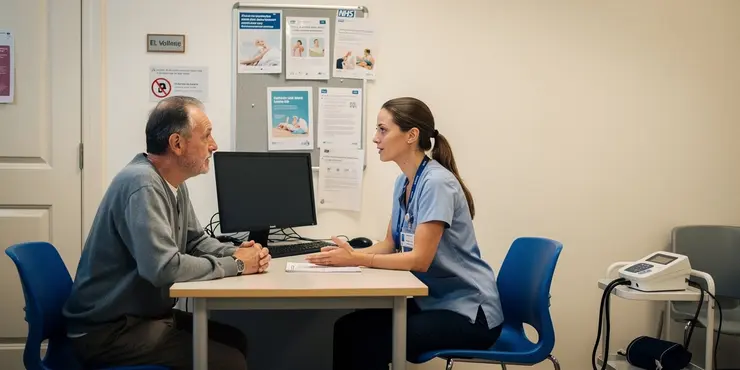
Who is at risk for motor neurone disease?
Relevance: 45%
-
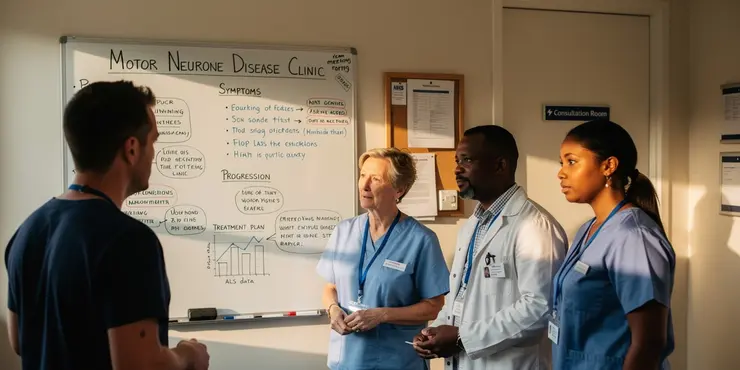
What research is being done on motor neurone disease?
Relevance: 44%
-

What is MND?
Relevance: 36%
-
How does Huntington's disease affect movement?
Relevance: 30%
-

Is Huntington's disease fatal?
Relevance: 29%
-
What is Parkinson's disease?
Relevance: 28%
-
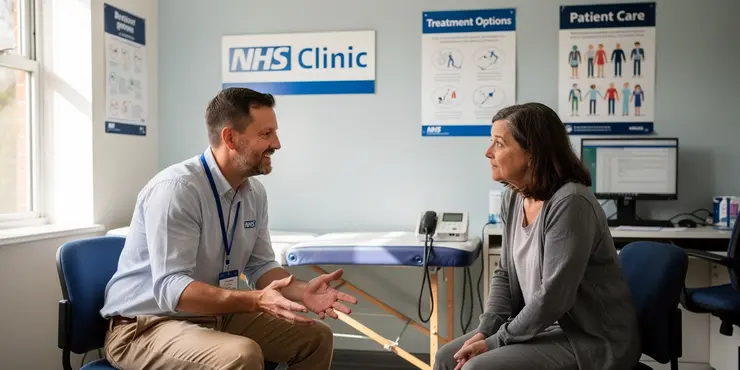
What research is being done on Huntington's disease?
Relevance: 27%
-
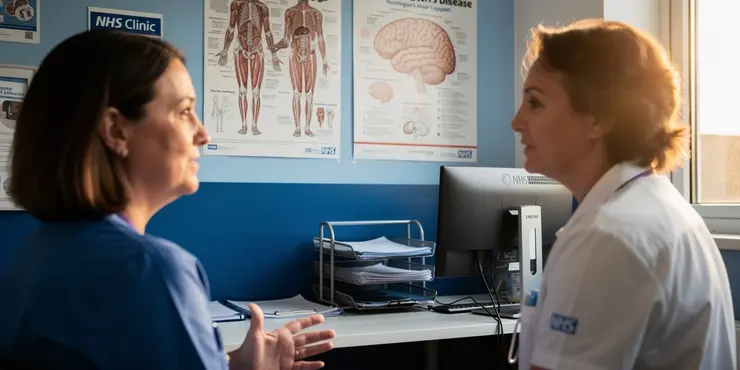
What is Huntington's disease?
Relevance: 27%
-
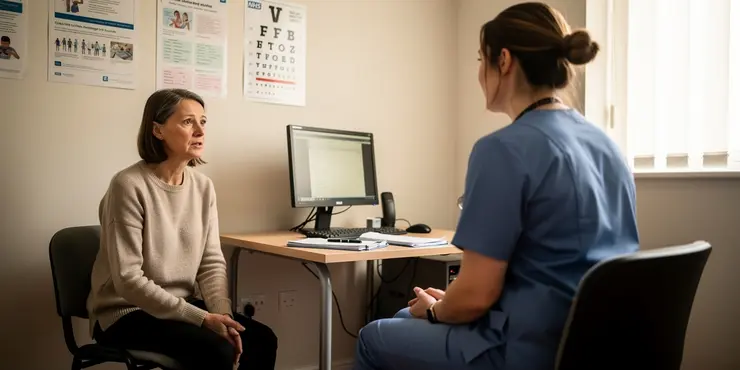
What are the symptoms of Huntington's disease?
Relevance: 26%
-
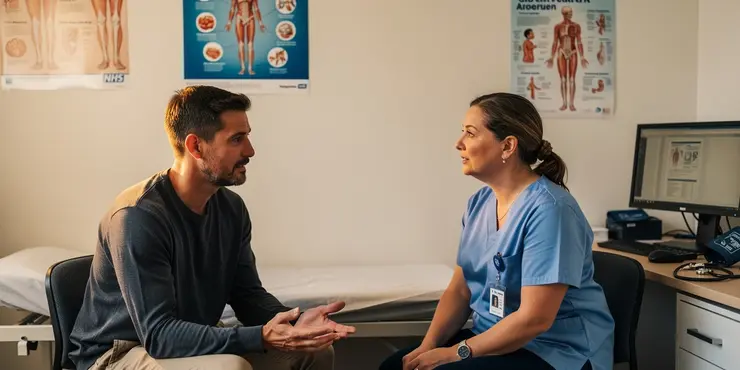
What causes Huntington's disease?
Relevance: 26%
-

How is Huntington's disease diagnosed?
Relevance: 25%
-

Can Huntington's disease be cured?
Relevance: 25%
-

Parkinson’s Disease and NHS RightCare: Long Term Condition Scenario
Relevance: 24%
-

BSL - Diagnosis of panic disorder
Relevance: 23%
-

Should You Get Life Insurance UK | Life Insurance & Life Assurance
Relevance: 23%
-

Charlie and Rupert on their journey with Spinal Muscular Atrophy and Zolgensma Gene Therapy
Relevance: 23%
-

How does Huntington's disease affect emotions?
Relevance: 23%
-

Introduction to Sickle cell disease
Relevance: 23%
-

What causes Alzheimer's disease?
Relevance: 22%
-

Is Crohn's disease contagious?
Relevance: 22%
Understanding Life Expectancy After a Motor Neurone Disease Diagnosis
Motor neurone disease (MND) is a progressive neurological condition that affects the nerves in the brain and spinal cord. It leads to muscle weakness and wastage, affecting mobility, speech, swallowing, and breathing. In the UK, around 5,000 people are currently living with MND, with about 1,100 new cases diagnosed each year.
Factors Influencing Life Expectancy
Life expectancy after a motor neurone disease diagnosis varies significantly depending on several factors. On average, most people with MND live for between two and five years after diagnosis. However, around 10% of those diagnosed may live for over ten years. Many factors influence this prognosis, including the specific type of MND, the rate of disease progression, age at diagnosis, and the overall health of the individual.
The most common form of MND is amyotrophic lateral sclerosis (ALS), which generally results in a life expectancy of two to three years post-diagnosis. However, there are more slowly progressive forms, such as primary lateral sclerosis (PLS), which may not significantly reduce life expectancy, although they can severely impact quality of life. Bulbar onset MND, which affects speech and swallowing early in the disease, may also be associated with a shorter life expectancy.
Improving Quality of Life
While life expectancy statistics can sound discouraging, it's important to focus on improving the quality of life for those living with motor neurone disease. Comprehensive care involving a multidisciplinary team can make a significant difference. This team may include neurologists, respiratory therapists, physiotherapists, occupational therapists, speech and language therapists, nutritionists, and social workers. Their combined efforts can help manage symptoms and improve comfort and mobility.
For example, non-invasive ventilation can aid with breathing difficulties and has been shown to extend life expectancy in some people. Similarly, communication aids and tailored physical therapies can greatly enhance daily living experiences.
Research and Hope for the Future
Currently, there is no cure for motor neurone disease, but ongoing research provides hope for improved treatments and outcomes in the future. Clinical trials are actively exploring new therapeutic approaches to slow disease progression and enhance quality of life. In the UK, charities and organizations such as the Motor Neurone Disease Association are at the forefront of funding research and offering support to affected individuals and families.
In summary, while motor neurone disease poses significant challenges, advances in care and treatment are continually improving the landscape for those diagnosed with this condition. Those affected by MND in the UK can access a broad range of supportive services aimed at maximizing both lifespan and quality of life.
Understanding Life Expectancy After a Motor Neurone Disease Diagnosis
Motor neurone disease (MND) is an illness that causes problems with nerves in the brain and spine. It makes muscles weak and smaller. This affects moving, talking, eating, and breathing. In the UK, around 5,000 people have MND, and about 1,100 people find out they have it each year.
Factors Influencing Life Expectancy
How long someone lives after they find out they have MND can be very different for each person. Most people live between 2 to 5 years after they learn they have MND. But about 10 out of every 100 people with MND might live over 10 years. Things that can change how long someone lives include the type of MND, how quickly it gets worse, how old they are when they find out, and how healthy they are overall.
The most common type of MND is called ALS. People with ALS usually live 2 to 3 years after finding out. Some types of MND get worse more slowly, like PLS, and might not change life expectancy much, but they can make life harder. If MND starts by affecting talking and swallowing, called bulbar onset, it might mean a shorter life expectancy.
Improving Quality of Life
Even though these facts sound hard, it's good to think about how to make life better for people with MND. A team of different health experts can help a lot. This team can include doctors for nerves, breathing helpers, movement specialists, and people who help with talking, eating, and daily living. They work together to help with symptoms and make life more comfortable.
For example, special machines can help with breathing problems, which may help people live longer. Tools that help with talking and special exercises can make daily life much better.
Research and Hope for the Future
Right now, there is no cure for motor neurone disease. But scientists are working hard to find better ways to treat it. They are testing new ideas to slow down the illness and make life better for people with MND. In the UK, there are groups like the Motor Neurone Disease Association that help pay for research and support people and families dealing with MND.
In short, even though MND is a tough illness, new treatments and care are helping people who have it. People with MND in the UK can use many services that try to improve how long and how well they can live.
Frequently Asked Questions
What is motor neurone disease (MND)?
Motor neurone disease (MND) is a rare condition that affects the brain and nerves, causing weakness and wasting of muscles.
What is the typical life expectancy after being diagnosed with MND?
The majority of people with MND have a life expectancy of 2 to 5 years after diagnosis.
Can some people live longer than 5 years with MND?
Yes, around 10% of people with MND live more than 10 years.
How does MND typically progress?
MND can progress at varying rates, but it commonly leads to increasing disability over time.
What factors influence the life expectancy of someone with MND?
Factors can include the specific type of MND, the age of onset, and the individual's overall health.
Are there subtypes of MND that affect life expectancy?
Yes, different forms of MND, such as ALS, PLS, and PMA, can have different impacts on life expectancy.
What is the most common form of MND?
The most common form is Amyotrophic Lateral Sclerosis (ALS), which affects both the brain and spinal cord.
What early symptoms might suggest the onset of MND?
Symptoms can include muscle weakness, slurred speech, and difficulty gripping objects.
How is MND diagnosed?
Diagnosis usually involves neurological examinations, electromyography (EMG), and MRI scans.
Are there treatments available for MND?
While there is no cure, treatments such as Riluzole can help to slow progression, and therapy can improve quality of life.
Is there a genetic component to MND?
About 5-10% of cases are familial, meaning they are linked to genetic mutations.
Can lifestyle changes impact the progression of MND?
Maintaining a healthy lifestyle, including nutrition and physical therapy, can help manage symptoms.
What support is available for people diagnosed with MND?
Support can include multidisciplinary medical teams, support groups, and specialized organizations for MND.
How does MND affect daily life?
MND can significantly impair mobility, communication, and the ability to perform everyday tasks.
What role does respiratory care play in MND management?
Respiratory management, including non-invasive ventilation, is crucial as respiratory failure is a common cause of death in MND.
Can assistive devices improve quality of life for MND patients?
Yes, devices like wheelchairs, communication aids, and home modifications can help maintain independence.
Are there experimental treatments for MND?
Research is ongoing, with clinical trials exploring new medication possibilities and therapies like stem cell treatment.
What is the impact of MND on families and caregivers?
MND can place emotional and physical strains on family members and caregivers due to the intensive care required.
Can palliative care support be beneficial for MND patients?
Palliative care can enhance quality of life and provide pain and symptom management for MND patients.
How important is early intervention in MND?
Early intervention can help manage symptoms more effectively and improve the overall prognosis for patients with MND.
What is motor neurone disease (MND)?
Motor neurone disease, or MND, is an illness that hurts the nerves in the body. These nerves are called motor neurones.
Motor neurones help the brain talk to the muscles. They tell muscles when to move.
When someone has MND, these nerves become weak. This makes moving, talking, and breathing hard over time.
Tools like picture cards or talking devices can help people with MND communicate.
Motor neurone disease (MND) is a sickness that makes your brain and nerves not work properly. This can make your muscles weak and smaller.
How long do people live after they find out they have MND?
People who have Motor Neuron Disease (MND) might live for different times. Some people live for about 3 to 5 years after they find out they have the disease.
It is important to talk to doctors. They can give good advice. Using tools like speech devices or wheelchairs can help make life easier.
Most people with MND live for 2 to 5 years after they find out they have it.
Can people live more than 5 years with MND?
Yes, some people with MND can live more than 5 years. MND affects everyone differently.
Helpful tools:
- Talk to a doctor to understand the illness better.
- Support from family and friends can help.
- Join a group to meet others with MND.
Yes, about 10 out of 100 people with MND live for more than 10 years.
What happens with MND over time?
MND stands for Motor Neurone Disease. It is a disease that affects muscles and nerves.
Over time, MND can make muscles weaker. This means it can be harder to move, talk, eat, or breathe.
Everyone with MND is different. For some people, changes happen slowly. For others, it happens faster.
It is important to talk to doctors and nurses. They can help and provide support.
You can use tools and devices to help you. For example, walking aids or special computer programs can make things easier.
MND is a disease that can get worse at different speeds. Over time, it often makes it harder for people to do things.
What things affect how long someone with MND might live?
Things that matter can be:
- The kind of MND someone has.
- How old they are when it starts.
- How healthy they are in general.
Tools that can help:
- Using pictures to explain ideas.
- Reading out loud with someone.
- Breaking information into small steps.
Do different types of MND change how long people live?
Yes, different types of MND, like ALS, PLS, and PMA, can change how long someone might live.
What is the most common type of MND?
MND stands for Motor Neurone Disease. It affects how muscles work.
The most common type of MND is called ALS.
Here are some tips to help understand:
- Use simple words.
- Read slowly.
- Ask someone for help if needed.
There is a disease called Amyotrophic Lateral Sclerosis, or ALS for short. It is the most common kind. ALS affects the brain and the spinal cord.
What are the early signs of MND?
MND stands for Motor Neurone Disease. It is an illness that affects the nerves in the body. Here are some early signs that might tell you if someone has MND:
- Weakness in the hands or legs - You might find it hard to pick things up or walk.
- Speech problems - Talking could become difficult, and your voice might change.
- Cramps and twitches - Your muscles may cramp or twitch when you do not want them to.
- Losing weight - Some people might lose weight without trying.
If you notice these signs, it is important to talk to a doctor. They can help find out what is happening. You can also use tools like picture charts or videos to better understand MND.
You might feel your muscles are not strong. It could be hard to talk clearly. You may also have trouble holding things in your hand.
How do doctors find out if someone has MND?
MND means Motor Neurone Disease. It is an illness that affects nerves in the body.
If a doctor thinks someone might have MND, they do some tests. These tests help them know for sure. Here are some things doctors might do:
- Ask questions about how the person is feeling and what's different.
- Check how the person's muscles are working.
- Do some special tests, like an MRI or a blood test.
If you or someone you know is seeing a doctor about this, taking a friend can help. They can listen and remember details. Writing down questions to ask the doctor is also a good idea.
Doctors find out what is wrong by doing special tests. These are:
- Checking how your nerves work.
- Testing your muscles with a machine called EMG.
- Taking pictures inside your body with an MRI scan.
Can doctors help people with MND?
There is no cure for this illness. But some treatments, like a medicine called Riluzole, can help slow it down. Therapy can also help you feel better and have a better life.
Is MND passed down in families?
MND means Motor Neurone Disease. It’s a sickness that affects the brain and muscles.
Some people get MND because of their genes. Genes are the instructions inside us that decide how we look and how our body works. We get them from our parents.
If someone in your family has MND, it can be helpful to talk to a doctor. They can explain if MND might run in your family.
Using pictures or videos can help you understand better. You can also ask someone you trust to read with you.
About 5 to 10 out of every 100 cases happen because of a problem with the genes. This means it can run in families.
Can changing how you live affect how MND gets worse?
Changing how you live means doing things like eating healthy food, exercising, and sleeping well. These changes might help you feel better.
Some tools can help, like a calendar for planning meals or reminders to exercise. You can also ask for help from family or friends.
Taking care of your body is important. Eating good food and doing exercises can help you feel better. Here are some ways to do it:
- Eat fruits and vegetables.
- Drink lots of water.
- Do simple exercises, like walking or stretching.
These things can help reduce aches and pain. You can also try using apps that remind you to drink water or take a walk. Remember, taking small steps makes a big difference!
What help is there for people with MND?
You can get help from different groups. Doctors and nurses work together to help you. There are also support groups where you can meet people like you. Special groups can also help with MND.
How does MND change everyday life?
MND stands for Motor Neurone Disease. It is a sickness that makes muscles weak and hard to move.
Here is how it can change things you do every day:
- Getting Dressed: It might be hard to put on clothes.
- Eating Food: Chewing and swallowing can be difficult.
- Walking: Walking may become tricky.
- Speaking: Talking can be hard to understand.
- Writing: Using a pen or pencil might not be easy.
People with MND can use special tools to help. For example, they can use larger utensils when eating or a computer that talks.
If you know someone with MND, being patient and kind is a great way to help.
MND can make it very hard to move, talk, and do simple daily things.
How does breathing help people with MND?
Looking after breathing is very important when a person has MND. Breathing help, like special machines that help you breathe without making a hole in your neck, can be very helpful. This is because breathing trouble can make people with MND very sick.
Can tools help MND patients feel better?
Yes, things like wheelchairs, talking machines, and changes to the home can help people do things on their own.
Are there new treatments being tested for MND?
Scientists are still working to find new medicines and treatments. They are testing things like stem cell therapy to help people feel better.
How does MND affect families and caregivers?
MND can make life hard for families and people who help care for someone with the disease.
This means they might feel sad, worried, or very tired.
They might need to spend a lot of time helping out, which can be tough.
Families can talk to doctors, support groups, and use other tools to help them cope.
MND can be tough for family and caregivers because it needs a lot of care. This can make people feel tired and worried.
Can palliative care help people with MND?
Palliative care is special help for people who are very sick. It helps them feel better and can happen at home or in a hospital.
MND is a serious illness that makes muscles weak. People with MND might find palliative care helpful for lessening pain and making life easier.
If you or someone you know has MND, talking to a doctor or nurse about palliative care can be a good idea.
Using tools like picture boards or talking devices can also assist those with MND in communicating their needs.
Palliative care can help people with MND feel better. It can make life more comfortable and help with pain and other problems.
Why is getting help early important for MND?
MND stands for Motor Neurone Disease. It's a sickness that affects the nerves in the body. Getting help early means seeing a doctor or nurse as soon as possible.
Getting help early can make a big difference. It can help people feel better and slow down the sickness. Doctors might give medicine or other treatments that help.
If you have questions, ask a nurse, doctor, or family member for help. There are also special tools like picture books or easy-to-read websites that can help explain things.
Getting help early can make symptoms better and can make life better for people with MND.
Useful Links
This website offers general information and is not a substitute for professional advice.
Always seek guidance from qualified professionals.
If you have any medical concerns or need urgent help, contact a healthcare professional or emergency services immediately.
Some of this content was generated with AI assistance. We’ve done our best to keep it accurate, helpful, and human-friendly.
- Ergsy carfully checks the information in the videos we provide here.
- Videos shown by Youtube after a video has completed, have NOT been reviewed by ERGSY.
- To view, click the arrow in centre of video.
- Most of the videos you find here will have subtitles and/or closed captions available.
- You may need to turn these on, and choose your preferred language.
- Go to the video you'd like to watch.
- If closed captions (CC) are available, settings will be visible on the bottom right of the video player.
- To turn on Captions, click settings .
- To turn off Captions, click settings again.
More Items From Ergsy search
-

What is the life expectancy after a motor neurone disease diagnosis?
Relevance: 100%
-

What is motor neurone disease?
Relevance: 80%
-
Is motor neurone disease hereditary?
Relevance: 77%
-
Are there different types of motor neurone disease?
Relevance: 77%
-

Is there a cure for motor neurone disease?
Relevance: 70%
-

How is motor neurone disease diagnosed?
Relevance: 69%
-

What causes motor neurone disease?
Relevance: 68%
-

Motor neurone disease Julie's story | NHS
Relevance: 67%
-

What are the primary symptoms of motor neurone disease?
Relevance: 67%
-

What treatments are available for motor neurone disease?
Relevance: 63%
-

How is breathing affected by motor neurone disease?
Relevance: 63%
-

How does motor neurone disease affect the body?
Relevance: 63%
-

What assistive devices can help people with motor neurone disease?
Relevance: 62%
-

What role do genetics play in motor neurone disease?
Relevance: 60%
-
How does motor neurone disease affect speech?
Relevance: 57%
-
Can lifestyle changes impact motor neurone disease progression?
Relevance: 56%
-

How does motor neurone disease impact swallowing?
Relevance: 56%
-

Voice banking service helps people live with motor neurone disease
Relevance: 56%
-

How can caregivers support someone with motor neurone disease?
Relevance: 50%
-

Are there support groups for individuals with motor neurone disease?
Relevance: 46%
-

Who is at risk for motor neurone disease?
Relevance: 45%
-

What research is being done on motor neurone disease?
Relevance: 44%
-

What is MND?
Relevance: 36%
-
How does Huntington's disease affect movement?
Relevance: 30%
-

Is Huntington's disease fatal?
Relevance: 29%
-
What is Parkinson's disease?
Relevance: 28%
-

What research is being done on Huntington's disease?
Relevance: 27%
-

What is Huntington's disease?
Relevance: 27%
-

What are the symptoms of Huntington's disease?
Relevance: 26%
-

What causes Huntington's disease?
Relevance: 26%
-

How is Huntington's disease diagnosed?
Relevance: 25%
-

Can Huntington's disease be cured?
Relevance: 25%
-

Parkinson’s Disease and NHS RightCare: Long Term Condition Scenario
Relevance: 24%
-

BSL - Diagnosis of panic disorder
Relevance: 23%
-

Should You Get Life Insurance UK | Life Insurance & Life Assurance
Relevance: 23%
-

Charlie and Rupert on their journey with Spinal Muscular Atrophy and Zolgensma Gene Therapy
Relevance: 23%
-

How does Huntington's disease affect emotions?
Relevance: 23%
-

Introduction to Sickle cell disease
Relevance: 23%
-

What causes Alzheimer's disease?
Relevance: 22%
-

Is Crohn's disease contagious?
Relevance: 22%


